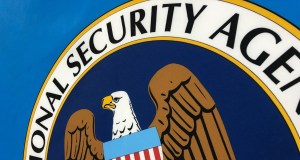The National Security Agency’s two main intelligence collection programs operated under Section 702 of the Foreign Intelligence Surveillance Act have generally been valuable in the nation’s efforts to identify and track terrorist threats, according to a report released Tuesday by the independent Privacy and Civil Liberties Oversight Board.
“The program has proven valuable in the government’s efforts to combat terrorism as well as in other areas of foreign intelligence,” the report states. “Monitoring terrorist networks under Section 702 has enabled the government to learn how they operate, and to understand their priorities, strategies, and tactics. In addition, the program has led the government to identify previously unknown individuals who are involved in international terrorism, and it has played a key role in discovering and disrupting specific terrorist plots aimed at the United States and other countries.”
But while the five-member board, established under the 9/11 Commission Act of 2007, agreed the NSA’s PRISM and upstream data collection programs were reasonably designed to minimize the collection of data pertaining to U.S. citizens, they split on their approaches to reform. PCLOB Chairman David Medine and Patricia Wald, the board’s two liberal members, called for court orders prior to authorizing the FBI to conduct Section 702 searches targeting Americans, except in emergencies. The two conservative members, Rachel Brand and Elisebeth Cook, argued that requiring prior approvals for each and every search would cause significant delays for a program that is already operating within its statutory limits and overwhelm the court. The fifth member of the board, Center for Democracy and Technology Vice President James Dempsey, took a centrist approach and said the potential for the FBI to search the Section 702 database for non-foreign intelligence purposes should be considered before an emergency arises.
“We concluded that the Section 702 program is legal, valuable and subject to intense oversight,” Cook said Wednesday during a public hearing on the report. “Our recommendations should not be viewed as an indication of concern about the current operation of the program.” For example, the panel’s recommendations regarding queries using U.S. person identifiers are not based on concerns that the privacy rights of Americans are being violated, but as a means to prevent the program from “transforming over time from a foreign intelligence program to a means of effectively surveilling U.S. persons,” Cook said.
Beyond its fundamental core, however, certain aspects of the Section 702 program “do raise privacy concerns and push the program close to the line of constitutional reasonableness,” Medine said. “Such aspects include the scope of incidental collection of U.S. persons’ communications, the use of ‘about’ communications acquired through the Internet that are neither to or from the target of the surveillance and the use of such queries to search information collected under the program for the communications of certain U.S. persons.”
Board member Patricia Wald, a former judge of the U.S. Court of Appeals for the District of Columbia, argued there should be a formal process established by which intelligence agencies are required to purge data pertaining to U.S. persons that has been determined to have no foreign intelligence value. “There’s no duty to review ever,” Wald said, referring to the current policy governing searches involving U.S. person identifiers.
Understanding Section 702
There are two surveillance programs covered under Section 702 of FISA: the PRISM program and upstream collection. In PRISM collection, the government sends a selector, such as an email address, to a U.S.-based service provider, and the provider is compelled to give the communications sent to or from that selector to the government. PRISM collection does not include the acquisition of telephone calls. The NSA is the primary collector of data collected through PRISM, but the CIA and FBI each receive a select portion of PRISM data.
Upstream collection involves government requests made to owners and operators of the telecommunications backbone over which telephone and Internet communications transit. Upstream collection includes telephone calls in addition to Internet communications. The NSA is the only collector of upstream data.
The Section 702 program has ben widely misunderstood. “It is not a bulk collection program,” Medine said. “The program only targets the communications of particular persons. Last year, approximately 90,000 targets were assigned in the program but it is not a widespread collection of information.” Those who are targeted are believed to be non-U.S. citizens based outside of the U.S. and of intelligence value.
Likewise, Medine said Americans’ emails cannot be searched for keywords, such as “Osama bin Laden” or other contemporary topics of popular discussion. Only key email addresses, or selectors, can be used to target individuals believed to be foreign intelligence subjects.
But the value of the program is clear, Cook said. “This program has assisted the government’s efforts to learn more systematically about the membership, leadership structure, priorities, tactics and plans of international terrorist organizations. It has enabled the discovery of previously unknown terrorist operatives, provided the locations and movements of known suspects and allowed the discovery and disruption of plots directed against the United States and foreign countries.”
Recommendations
The PCLOB report outlines 10 recommendations to enhance privacy protections under Section 702 of FISA, which Medine said were adopted unanimously. Among the five major themes covered by the recommendations were:
- Targeting process. The board calls for the government to clearly articulate the foreign intelligence basis for its targeting decisions.
- Role of the Foreign Intelligence Surveillance Court. The board recommends the government submit a sample of tasking sheets and query terms so the court can can consider them in approving the continued operation of the program.
- Upstream collection. The board calls for a periodic assessment to ensure the best technology is being used to filter out purely domestic communications.
- Accountability & transparency. The board calls for the declassification of NSA, CIA and FBI data minimization procedures.
- Efficacy. The government should develop a comprehensive methodology for assessing the efficacy of counterterrorism surveillance programs.






